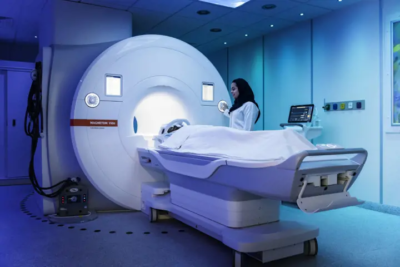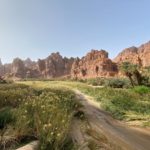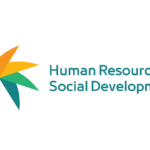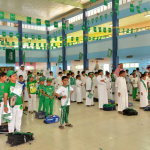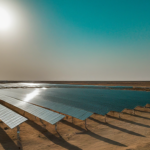
“[Neom] will be the world’s first cognitive and pro-active city…We will leverage 90 percent of the data we produce and utilize it in the city. It’s never been done before. We want to build a citywide operating system that is aware, predictive and can take action….We are looking for a range of partners to bring the cognitive city to life.”
-Joseph Bradley, head of tech and digital at Neom, in comments made to London’s Tech Week event encouraging UK companies to participate in the development of Saudi Arabia’s $500 bill smart city. [Arabian Business]

“We are likely to end 2020 with negative growth, but it is likely to be on the lower side of OECD expectations on G20 members. I hope, and I’m challenging Kristilina, that we will come quite below what they are expecting in terms of 2020 negative growth.”
-Mohammed Al-Jadaan, Saudi Arabia’s Finance Minister, in a conversation with Kristilina Georgieva, IMF Managing Director, during a World Economic Forum virtual discussion of the Saudi economy. [Arab News]

“Saudi Aramco’s share price has gained 1% in Riyadh this year, in large part because of the dividend pledge. Shell’s has slumped 53% and BP’s 43%.”
-Matthew Martin in Bloomberg examines the impact on Saudi Aramco of the global economic downturn and Saudi government budget demands. [Bloomberg]

“[T]he joint venture is important because green hydrogen has been widely presented as the holy grail of decarbonization, taking on a central role in research as the new carbon-free fuel.”
-Jean-François Seznec and Samer Mosis analyze the technological, logistical and financial challenges awaiting the joint venture recently agreed between Air Products and ACWA power to build the largest green hydrogen and green ammonia plant in the world in Neom. [energypost.eu]

“The positive economic data for June gives us confidence that the Saudi economy is rebounding from the impact of COVID-19 and that growth in foreign investment will begin to regain the strong momentum we have seen in recent years.”
-Khalid Al-Falih, Minister of Investment, in comments made as he announced that 506 new business licenses were granted in the first half of this year in Saudi Arabia, with a burst in activity in June partly compensating for a big fall-off in April and May when lockdowns severely curtailed global investment activity. [Arab News]

“Yanbu is known for its rich history, dating back at least 2,500 years. Its earliest history places Yanbu as a staging point on the spice and incense route from Yemen to Egypt and on to the Mediterranean. During the revolt, the city served as a supply and operations base for Arab and British forces fighting the Ottoman Empire.”
-Saleh Fareed in The National writes about the restoration of a home in Yanbu once occupied by British intelligence officer Thomas Edward Lawrence (Lawrence of Arabia) between 1915 and 1916 at the beginning of the Great Arab Revolt. [The National]

“Epidemiological investigation teams tracking the spread have noticed that half of the confirmed cases recorded as of late are of people not adhering to proper protocols such as wearing masks and following social distancing measures in public places; most of them are of the youth demographic.”
-Mohammed al-Abd al-Aly, a Saudi Ministry of Health spokesman, told reporters Wednesday, confirming that half of Saudi Arabia’s recent coronavirus cases are among young people who have not been following health guidelines. [foxnews.com]

“For Saudi Arabia, cutting oil shipments into the U.S. is the quickest way to telegraph to the wider market that it’s tightening supply. The U.S. government is alone among major oil-consuming nations in publishing weekly data on crude stocks and imports, which carries enormous influence among oil traders. Those figures will be released later on Wednesday.”
-Brian Wingfield and Sheela Tobben in Bloomberg examine the strategy behind Saudi crude exports to the United States. Tracking data shows they fell to 177,000 barrels a day in August, the lowest since early 2017. [Bloomberg]

“The relationship with SABIC went back to 2015, but he found his services much in demand as plans for the megaprojects of the Vision 2030 strategy advanced. He became an adviser to the Red Sea Development Company, the Royal Commission for AlUla, and for the Al-Soudah project run by the Public Investment Fund, as well as a member of the higher council of NEOM, the huge urban development planned for the Kingdom’s northwest.”
-Frank Kane interviews world-renowned sustainable design advocate Bill McDonough known as the ‘father of the circular economy’ and a strong proponent of CCUS — carbon capture, utilization and storage. [Arab News]

“This is a significant step in introducing sophisticated market products and creating a trading environment that is attractive to local as well as international investors.”
-Khalid Alhussan, Tadawul CEO, on the launch of Saudi Arabia’s first exchange-traded derivatives market which uses Nasdaq technology. [Reuters]



